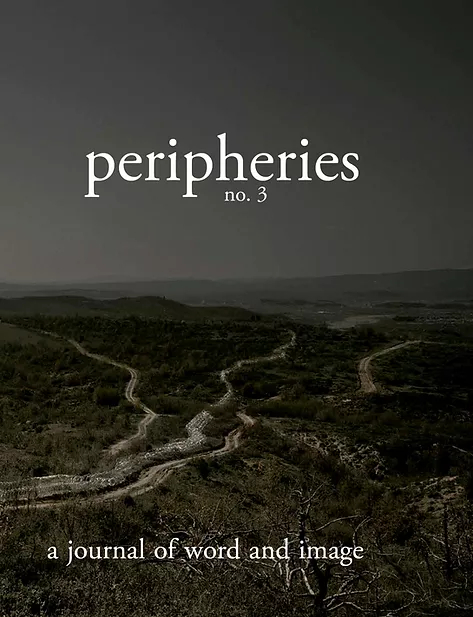He’s unbuttoning his shirt, we’ve never met before, he sayslast night he had a dream about me. A good dream,he tells me; a strong one – meaning I was strong, and that for the firsttime in years, apparently, he felt completely safe. To confuseclosure with conclusion is nothing new, I at firstwant to say to him, but a shadow-softness to his face brings outa softness in me that I don’t show, usually, it makes mewant to lean hard into his chest instead, the part where the hair –faint, still, as if still filling in – looks like two wingspositioned where they shouldn’t be, but on purpose, so thatflight means for once not seeing the earth fall away, but the skygetting steadily closer, let the body approach…Will I everstop wanting more than what I’ve already got, I used to wonder,not realizing yet that’s all ambition is, finally; I thoughthumility would be a smaller thing, a quieterthing, it seems I was wrong about that, too. I can’tdecide if it’s just my being so much older now, or if it’salways been true, that winter foliageis the prettiest foliage.
Anywhere Like Peace
Feature Date
- January 5, 2022
Series
Selected By
Share This Poem
Print This Poem
Copyright © 2021 by Carl Phillips.
All rights reserved.
Reproduced by Poetry Daily with permission.

Carl Phillips is the author of 16 books of poetry, including Then the War: And Selected Poems 2007-2020 (Farrar, Straus & Giroux, and Carcanet/UK, 2022) and Wild Is the Wind (FSG, 2018), which won the Los Angeles Times Book Prize. His new prose book, My Trade Is Mystery: Seven Meditations from a Life in Writing, is forthcoming from Yale University Press in September 2022. Phillips teaches at Washington University in St. Louis.

3
Cambridge, Massachusetts
Harvard Divinity School
Editor-in-Chief
Sherah Bloor
Managing Editor
Harry Hall
Peripheries is a non-profit literary and arts journal established in 2017 that publishes artistic work that is, broadly understood, "peripheral"; work that explores the interstices between discourses, traditions, languages, forms, and genres. In this spirit, along with publishing poetry, visual art, and short stories, our scope is expansive, including translations, interviews, creative nonfiction, reviews, aphorisms, recipes, instructions, and manifestos. We encourage formal experimentation that is in a mutually-informing, organic relation to the artist’s topic or question, which might also explore the peripheral: the marginal, the incidental, the boundary-experience, the tangential, the borderline, and particularly the metaxical spaces (that both attract and repel) between artistry, philosophical speculation, mystical experience and religious traditions. We are excited to expand these discussions in whatever way is meaningful to you and bring your myriad interpretations into dialogue on our pages.
Peripheries is proud to publish emerging writers, alongside established luminaries. We invite new artists to submit their work, including those under-represented in traditional literary circles.
Peripheries is published annually by Harvard Divinity School’s Center for the Study of World Religions under the supervision of its director Charles M. Stang. Hard copies are printed and distributed free-of-charge to the Harvard community. We hope to sell print copies of the journal at cost on our website in the new future.
Poetry Daily Depends on You
With your support, we make reading the best contemporary poetry a treasured daily experience. Consider a contribution today.



